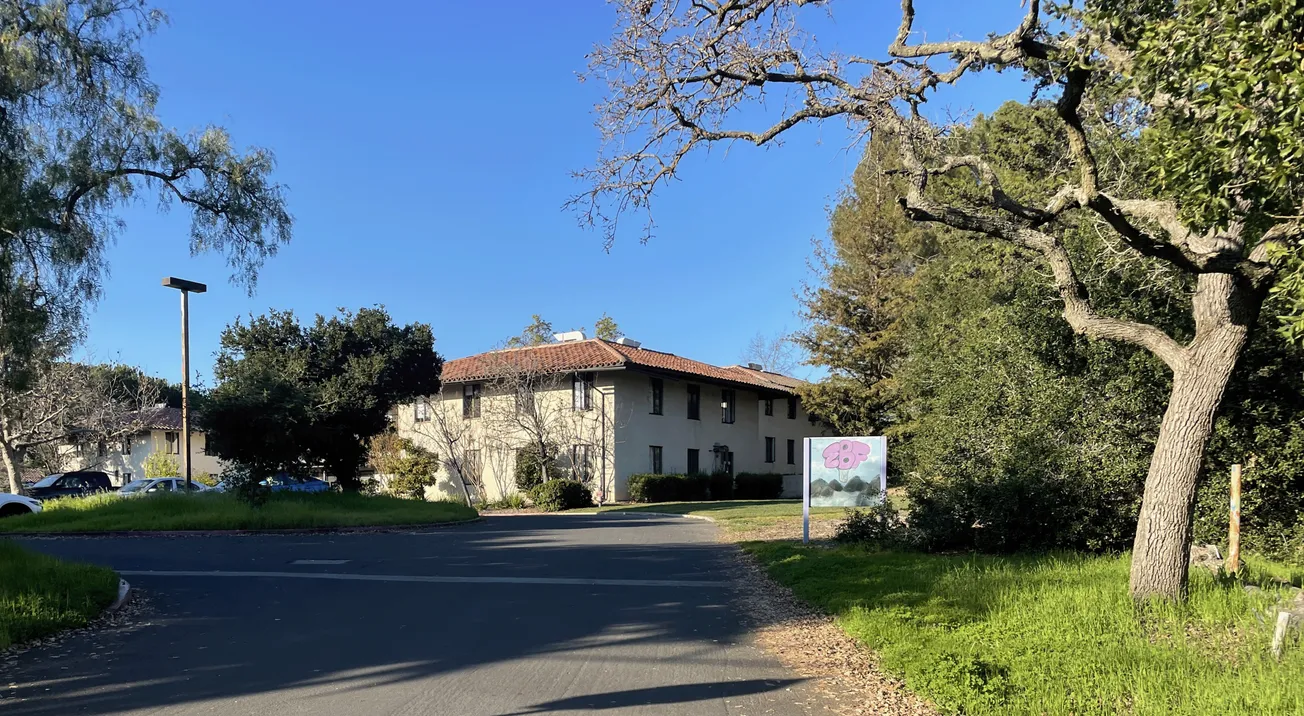Table of Contents
On July 21, 2025, Stanford announced that it would suspend the co-op status of Enchanted Broccoli Forest (EBF) and Kairos. The decision was announced after a month-long investigation into the co-ops found that they violated Title VI, the federal law that prohibits harassment and discrimination based on race, color, national origin, and shared ancestry in educational institutions.
In an official statement, administrators explained that EBF violated Title VI through discriminatory language targeting white and male students.
In an email obtained by the Review that EBF Resident Assistants (RAs) sent to incoming residents, the RAs wrote that, “Enchanted Broccoli Forest is historically dedicated to uplifting the voices of queer people of color, and thus is committed to being a place of refuge for those who are black, brown, gender-marginalized, and FLI. If you are white / white-passing, or if you are a man, do understand that you are being invited into a space that wasn't and isn't made for you. We welcome you to this community; however, we ask that you acknowledge and are cognizant of the space you are occupying, and how, by nature, your presence may suffocate.”
Beyond discrimination, the EBF email also raised concerns by stating that "we want to be able to provide a safe and fun environment for people to experiment with substances, and thus cannot accommodate those uncomfortable with substances in shared spaces." Stanford stated that this “may violate federal and state laws, Stanford policy, and residence housing agreements.”
EBF has historically been a location where students feel comfortable accessing and trying new substances in a peer-monitored environment. Shortly after EBF residents were informed about the co-op's lax views on drug usage in the house, it was penalized by the university. This sudden crackdown on substance usage is very contradictory to some of Stanford's attempts to end the “war on fun.” As a result of this penalization, one would expect to see an increased sense of paranoia surrounding drugs, pushing them further into potentially less safe, private spaces.
Kairos violated Title VI through racial discrimination against Jewish students. The investigation found that this spring, students participating in an extracurricular activity were asked to leave the house and told that the presence of “Zionists” in the group was making residents uncomfortable.
According to the university, “The investigator found that the extracurricular project had nothing to do with the Middle East and that none of the students present had shared their political beliefs. The investigation determined that students were targeted based on their perceived Jewish identity.”
“It is simply not acceptable that Jewish students would be excluded from a university space, or asked to explain their political beliefs to remain in that space,” the university statement emphasized. “No student should be subject to this kind of discrimination, whatever their identity.”
Both houses will have their co-op status suspended for at least the 2025-26 academic year, with their names removed during the suspension period. The houses will operate under university management with resident directors, ending their self-governance model.
In an interview with the Review, Vice Provost for Institutional Equity, Access, and Community, Patrick Dunkley stated, “There needs to be accountability when the law or university policy is violated. Stanford must also take action to prevent future violations by resetting norms, expectations, and culture within the residences. During this reset, the self-governance associated with co-op status will be suspended. Stanford emphasized its effort to “mitigate the impact on students who were not personally involved in the activities that resulted in the suspension.”
When questioned about whether or not the house culture will change with the same student populations living in the houses, Dunkley stressed that “it will not be a self-governing house. It will be a house that will be governed by that resident director from residential education.” He clarified that the resident director “will not live in the house" but “will be very actively engaged with the house.”
In the wake of the Trump administration's scrutiny of elite universities for discrimination issues, most notably targeting Harvard, the decision appears to be an attempt to prevent similar federal intervention at Stanford. The timing comes as universities face pressure to address antisemitism and discrimination on campus. EBF, Kairos, and others have been perpetuating similar behavior for years. It cannot be a coincidence that the Stanford administration is just beginning to care.
When questioned about why action is being taken now, given previous incidents, Dunkley responded: “I can't speak to things that have happened in the past. What I can speak to is the incidents that occurred this year that gave rise to Title VI reports that the university investigated and made a determination that there was a Title VI violation, and then took decisive action to address those issues.”
Under university management for the 2025-26 school year, EBF and Kairos must demonstrate to the administration that they are capable of self-governance while complying with federal anti-discrimination laws and university policies. Only then will their co-op status be reinstated. Time will tell whether Stanford’s interventions will prove effective or not.
Correction: The Review misquoted Provost Dunkley; his corrected quote is: "…gave rise to Title VI reports that the university investigated and made a determination…"





